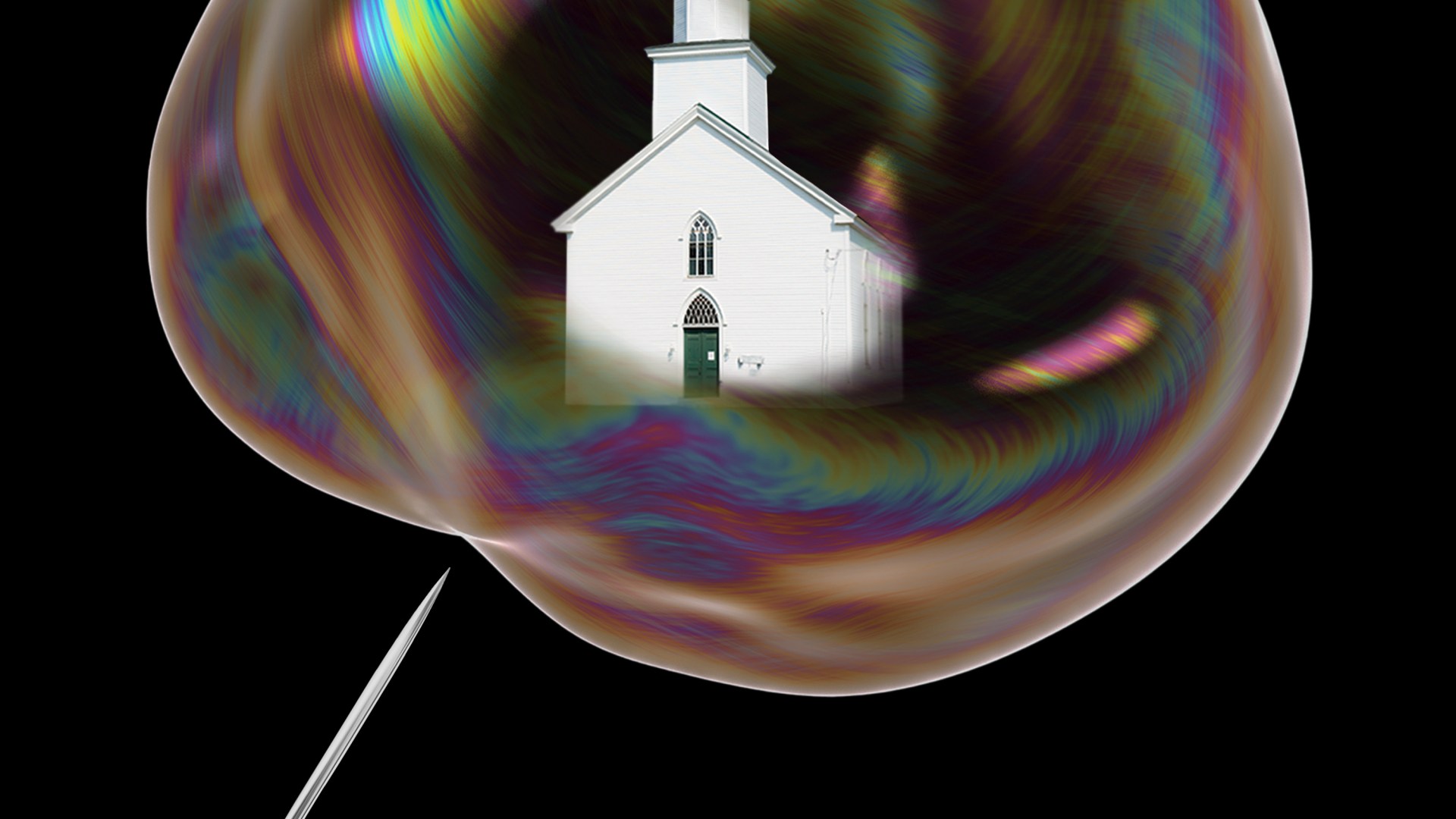Recently, a woman at my church approached me with a question borne out of genuine curiosity. She asked, “You’re a female theologian. Why did you choose to come to our church when women aren’t allowed to preach here?”
Since much of my work as a Bible scholar is public, it is no secret that I support women’s full participation in ministry, including in church leadership. So I wasn’t surprised that someone happened to notice my convictions did not match our church’s practice on this issue.
It’s a good question, and one I’ve wrestled with regularly—since, at present, I don’t feel I’m able to serve our church in all the ways that God has called and equipped me. I so long for the body of Christ to embrace the gifts of all its members, not only here but around the world. But as CT’s April issue reminds us, the global church is far from united on what women can and can’t do in church.
Still, I was glad my friend asked me about our family’s decision-making process, because it’s face-to-face conversations like this that prevent polarization. The role of women isn’t the only issue that divides us today. Approaches to racial reconciliation or diversity initiatives, our posture toward climate change, and politics—particularly when there’s another contentious presidential election in sight—are all areas that threaten to fracture our faith communities.
According to The Great Dechurching, a recent book by Jim Davis, Michael Graham, and Ryan P. Burge, people are leaving the church in unprecedented numbers. Forty million Americans who used to attend church no longer do—that’s 16 percent of adults in the US. And while some have simply stopped believing, others are leaving because they disagreed with their church or its clergy, and still more feel hesitant to re-engage with church for a variety of other reasons.
That’s not to say there aren’t many good reasons to move on to a different church—with any form of abuse being highest among them. Participation in corporate worship is not something to take lightly, and there is much to consider when deciding to join a church family. We must take a church’s doctrine and practice seriously as we consider whether we can commit to membership. We are shaped by our community, after all.
Yet I have a growing conviction that we give up far too easily on meeting together when we disagree. I believe there’s a danger in seeking out people who align so precisely with the way we see the world that we will never be challenged in our beliefs or our life choices—not to mention that we are likely to leave as soon as the illusion of perfect alignment is inevitably shattered.
Part of the problem, as Daniel K. Williams points out in a previous piece for CT, is that evangelicals’ theology of the church must be born again—out of the inbred individualism that prioritizes personal faith over (optional) participation in corporate community. As Myles Werntz notes about Bonhoeffer’s ecclesiology, the church should not be centered on individual experience but on being “a people who encounters Christ through and with one another.”
We can learn so much more from fellowshipping with those who see the world from a different vantage point. A church that’s an echo chamber fails to reckon with the ways God’s Spirit works deep and wide across the globe. But learning to love others who see the world differently takes work—especially in a society that sorts us out based on our natural affinities.
For starters, internet algorithms effectively silo us from hearing from others who hold different views. “Algorithms serve up the news we want to hear, virtually assuring us of our own rightness,” Carrie McKean observes. Online friend groups prompt us to self-select our conversation partners based on shared interests and affiliations. And, for a variety of historical and socio-economic reasons, our neighborhoods and schools can sometimes become homogeneous as well.
But this problem isn’t new. Even in the first century, long before modern technology, human beings were separating themselves from those who are different. Yet Jesus had little interest in uniformity. He publicly engaged both with religious leaders and society’s most notorious sinners. He accepted people from every social class, from the rich young ruler to the poor widow.
Among his disciples was a tax collector working for the Roman government, several fishermen who resented Roman taxation, and a radical trained to fight Rome. Likewise, his female followers were members of vastly different economic classes—from the poorest crowds to the ruling elite. Based on these affiliations and associations alone, Jesus’ followers represented the entire sociopolitical spectrum of the time.
Jesus not only tolerated people with different points of view but also intentionally sought them out and created a new community that transcended these differences. Jesus sought to build a new community that rose above divides of political affiliation, class, and gender. He invited his followers to work together on something important—following him, learning from him, imitating him—and learning to love each other.
Still, after Jesus’ ascension, the early church quickly faced difficult questions about how much racial and cultural diversity the church could, or should, tolerate and incorporate. But as they opened the doors to non-Jews, they ultimately discovered the rich contributions these Jesus followers could make to the movement.
In fact, there were a host of differences that could have divided early Christian communities. Take the short book of Philemon, for example, which explores how a freed slave rejoins fellowship as an equal with his former slave owner. And we think our churches have challenges!
Yet too often today, church hunting simply becomes a search for “our people”—that is, those who live comparable lifestyles, have similar opinions, and vote the way we do. And if that’s our approach, we’re missing out.
When we moved to Southern California in 2021, we had the opportunity to start fresh and reimagine what church participation could look like. I was hungry for a sense of rootedness, a connection with the historic Christian faith that attended to the church calendar and was sensitive to the spiritual formation that happened during gathered worship. We also wanted a church that was close to home, preferably within walking distance. (That certainly narrowed things down!)
These various factors led us to the church we now call home, just three blocks away from our house. It’s a unique congregation with the strong influence of university professors and students, making it a thoughtful and intellectually robust congregation that is at the same time remarkably low-key. It has a strong sense of community, with active groups meeting regularly, a prayer team available after service, and weekly fellowship over donuts and coffee where friendships can deepen.
I was amused and delighted on the first Sunday when we walked up to the donut table and saw a sign that read “Ordinary Time” to signal our place in the liturgical calendar. (In case this is new for you, Ordinary Time is the season of the church calendar that begins after Pentecost and leads up to Advent.) And when the host welcomed the congregation with an opportunity to silently consider our intention as we entered the service, I was sold. This was the kind of spiritual shepherding and historical rootedness I had been longing for.
Over time, of course, I’ve learned that my fellow church members and even its leaders sometimes disagree and see things differently. Some of these differences are simply philosophical or doctrinal, but some can impact our actual practice (or, in my case, who is allowed to practice) and become a source of angst for members who are personally affected.
Some have asked me why we don’t leave—but such a decision is not simple. Of the whole list of factors that go into choosing a congregation to join (location, doctrine, practice, music, preaching, community, values, events, missional fit, and opportunities for service), our current church is the best match for us.
We are consistently challenged and nurtured in ways we appreciate. We serve in meaningful ways. Leaving would be deeply painful because we love the people and so much about the services. It’s not just about what we get from the service. It’s also about what we can give. We might find another church that’s a better fit in one area, but it might be lacking in other areas.
We stay because we have come to love these people. We are convinced that some differences need not divide us, and we’re better off learning how to love one another well amid our disagreements.
Spending time face to face and side by side with those who see the world from another angle is good for our souls. It shatters the untrue and unhelpful illusion that the world is filled with people who look and think like us. It reminds us that the kingdom of God is wider and deeper than the homogeneity of our imaginations. I, for one, still have much more to learn and more to teach in my local community of fellow disciples.
Spiritual transformation does not depend solely on what is said from the pulpit but on who is beside us in the pews. As we give shared attention to following Jesus, we will become more like him. And as we each draw closer to Jesus, we will inevitably draw nearer to one another in our shared understanding and love. In our increasingly divided world, this is the good news we all need!
Carmen Joy Imes is associate professor of Old Testament at Biola University and author of Bearing God’s Name and Being God’s Image. She’s currently writing her next book, Becoming God’s Family: Why the Church Still Matters.










































